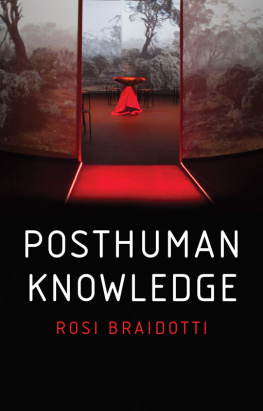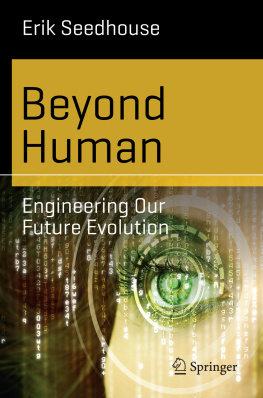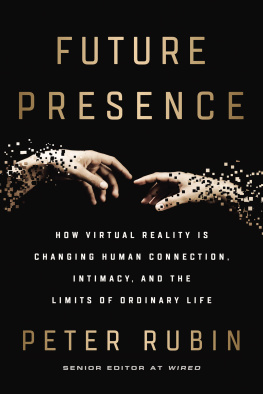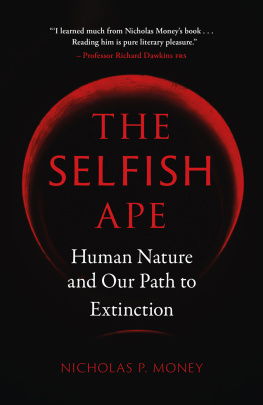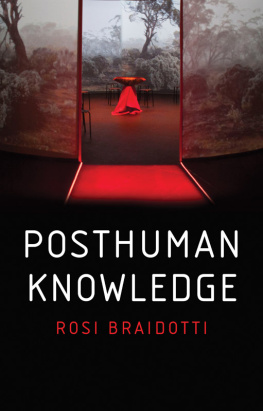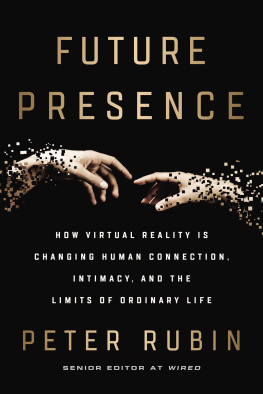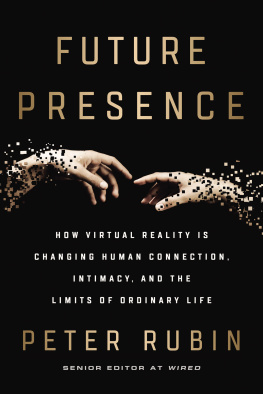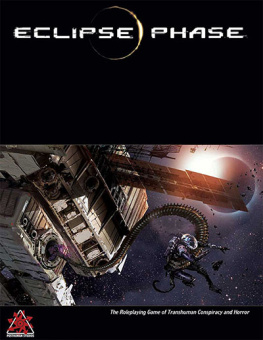ECLIPSE OF MAN
NEW ATLANTIS BOOKS
Adam Keiper, Series Editor
PREVIOUS VOLUMES:
Why Place Matters:
Geography, Identity, and Civic Life in Modern America
Edited by Wilfred M. McClay and Ted V. McAllister
Merchants of Despair:
Radical Environmentalists, Criminal Pseudo-Scientists, and the Fatal Cult of Antihumanism
Robert Zubrin
Neither Beast nor God:
The Dignity of the Human Person
Gilbert Meilaender
Imagining the Future:
Science and American Democracy
Yuval Levin
In the Shadow of Progress:
Being Human in the Age of Technology
Eric Cohen
www.newatlantisbooks.com


2014 by Charles T. Rubin
All rights reserved. No part of this publication may be reproduced, stored in a retrieval system, or transmitted, in any form or by any means, electronic, mechanical, photocopying, recording, or otherwise, without the prior written permission of Encounter Books, 900 Broadway, Suite 601, New York, New York 10003.
First American edition published in 2014 by Encounter Books, an activity of Encounter for Culture and Education, Inc., a nonprofit, tax exempt corporation.
Encounter Books website address: www.encounterbooks.com
The paper used in this publication meets the minimum requirements of ANSI / NISO Z39.48-1992 (R 1997) (Permanence of Paper).
FIRST AMERICAN EDITION
LIBRARY OF CONGRESS CATALOGING-IN-PUBLICATION DATA
Rubin, Charles T.
Eclipse of man : human extinction and the meaning of progress / by Charles T. Rubin.
pages cm
Includes bibliographical references and index.
ISBN 978-1-59403-741-2 (ebook)
1. Philosophical anthropology. 2. Human beingsForecasting. 3. Human evolution. 4. Human bodyTechnological innovations. 5. Cyborgs. 6. BiotechnologyMoral and ethical aspects. 7. Humanity. 8. Progress. I. Title.
BD450.R73 2014
128dc23
2014022022
CONTENTS
FOR MY PARENTS
I know that it is a hopeless undertaking to debate about fundamental value judgments. For instance, if someone approves, as a goal, the extirpation of the human race from the earth, one cannot refute such a viewpoint on rational grounds. But if there is agreement on certain goals and values, one can argue rationally about the means by which these objectives may be attained.
ALBERT EINSTEIN, 1940

MANKIND WILL surely destroy itself. Whether predicted in a thunderous denunciation of our flaws or with mild worldly regret, an apocalyptic future has become a clich. Will it be global warming or global cooling? Nuclear winter or radiation poisoning? Famine due to overpopulation, or pollution-induced sterility? These are some of the possibilities I grew up with. But today, it is becoming increasingly common to hear of another route to the demise of humanity: we will improve ourselves, becoming something new and better, and in doing so we will destroy what we are now. We have this opportunity because science and technology are giving us the power to control human evolution, turning it from a natural process based on chance to one guided by our own intelligence and will.
This ideathat human progress points toward human extinctionis held by people who go by a variety of names: transhumanists, posthumanists, extropians, advocates of H+, or singularitarians. It can be difficult to keep these terms straight, as they each represent schools of thought whose agreements and disagreements can be complex and ingrown. For the purposes of this book, all these schools of thought will be given the generic label transhumanism.
Hence, the end of man can be the beginning of... who knows what, exactly? But, we are told, it will doubtless be some wondrous new home for intelligence, able to do things far beyond our present ability to imagine. If my baby boom generation was warned that the challenge of the future involved ensuring the continued existence of human beings in the face of all the threats posed by our own activities (and to some extent by nature itself), for the transhumanists it is becoming increasingly difficult to imagine a future that has any place for us at all, except perhaps as curiosities.
Such views of the future can strike sensible people as idiosyncratic or even loony. But this book will show why that understandable first reaction should not be the whole story. There are some serious reasons why transhumanists have come to measure progress by the speed at which mankind disappears, and those reasons are more deeply rooted in mainstream ways of looking at the world than might at first be obvious. At the same time, as we shall see, there are also very good reasons to reject the transhumanist future, and to work toward a future in which, as William Faulkner put it in his speech accepting the Nobel Prize in Literature, man will not merely endure: he will prevail. Those reasons will emerge from a serious confrontation with transhumanist ideals and the foundations on which they are built.

SUFFICIENT UNTO THE DAY?
It can be difficult to know what transhumanism amounts toa worldview, an ideology, a movement, or some combinationbut it cannot simply be dismissed as irrelevant. Doctoral dissertations and academic conferences have focused on transhumanism, and a few major universities have scholarly centers wholly devoted to exploring transhumanist ideas. Books and blogs, think tanks and online communities, documentaries and blockbuster movies have all helped to popularize those ideas. Major news outlets routinely publish reports uncritically explaining them. In short, many of the people who are inventing the tools of tomorrow embrace, or are at least informed by, the transhumanist vision of the day after tomorrow.
The transhumanist program to redesign humanity is often linked with the rise of the so-called converging technologies: nanotechnology, biotechnology, information technology (and sometimes robotics), and cognitive science.
Are such developments really likely, or even possible? Some critics point out problematic scientific or technological assumptions underlying transhumanists ideas, or the obstacles that they might have overlooked. Critics also sometimes focus on the considerable uncertainty about what is possible, arguing that that uncertainty might in and of itself be adequate reason for ignoring those who happily anticipate an end to humanity. Without a clearer idea of what will actually be possible in the future, debating the details of various transhumanist predictions might seem like a waste of timeand surely we have more pressing things to worry about today.
Next page

